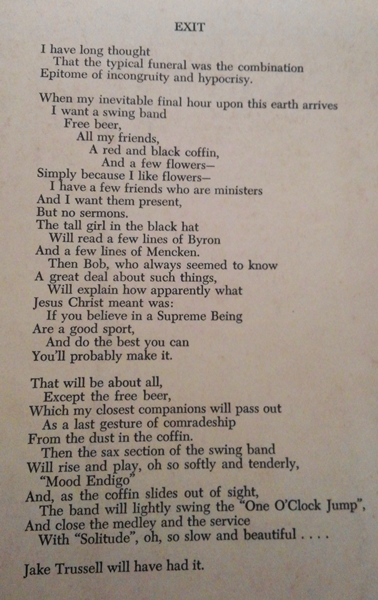The other night I dreamed of my best friend and roommate in college (from 1959-61). The last time I spoke to her on the phone, probably 7 or 8 years ago, she was living in an Assisted Living place while her husband, afflicted with Parkinson’s, was in the Memory Loss Unit. She was furious because her children had taken away her car and license.
When I “googled” her today, I found her obituary. She died in 2021, “peacefully”, it said, and suggested contributions to the Alzheimer Association.
In our Junior year, we shared a room in the sorority house with two other girls. This is three of us in 1959.
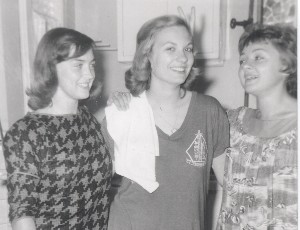
Shirley, Carole, and me.
I (on the right) am the only one of us three who is still alive.
Here are the four of us at our reunion in 2004. Shirley and Carole, in the middle, are both gone. Cathy married a guy with whom I loved to dance. He had great style and knew how to lead. Cathy has been a widow for the past 4 years.
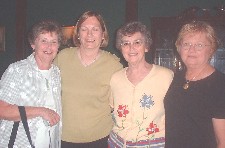
Cathy, Carole, Shirley, and me.
Shirley and I shared our clothes and countless adventures during our college years. We wore the same size clothing, and I was more than happy to wear her comfortable, casual outfits, while she wore many of the dresses and skirt-sweater sets with which my family saddled me each year. Another difference between us was that I wore lots of makeup and she wore none. And while she was a Business major with a very linear and logical mind, I was an English major who fantasized about moving to San Francisco to write poetry and live in a garret. We also had different taste in boyfriends, so we were never in competition with each other. I don’t think we ever had an argument, unless you count the time my roommates got fed up with my messiness and took all of my stuff that was lying around, wrapped it all in my blanket, and threw it in the closet.
Shirley taught me to drive while she was taking the college class to get certified to teach Drivers’ Ed. She had a car, and I was 19 years old and had never learned.
Shirley’s and my greatest adventure was heading out to Daytona Beach during the spring of ‘59 for Spring Break. We drove straight through from Albany, NY to Daytona in a little blue coupe with three guys we knew. I think it was Chuck Recesso’s car, and he did most of the driving. One of the other guys was Frank Fallace, but I can’t remember the name of the third, although I can picture his face and could probably find him in the yearbook. I remember the drive through the South and the signs in the places we stopped for both ingesting and eliminating food that boasted signs of “coloreds not allowed.” We were liberal Northerners, and were taken aback by the reality.
While the guys were probably assuming that we would hang out with them, Shirley and I had other plans, since she had male friends from Cortland State College who were also planning to be there.
I don’t remember much of our time in Daytona, but I remember that the water was filled with Portuguese Man-of-War fish, and that we partied hard (still vehemently protecting our virginities, of course) and finally wound up booking flights to come home, avoiding the stifling car ride back– 17 hrs (1,157.2 mi).
We each married in June of 1961, but our lives went in totally different directions. Shirley married the handsome and sweet Owen Davis, teaching business subjects at a community college, and boasting three children and, finally, several grandchildren.
The last time I saw her and her husband was about 15 years ago, when I met them one Fall, down in the Catskills, for an apple festival. Owen was already showing signs of the Parkinson’s disease that finally ended his life; but he was still handsome and sweet. I wish that I had kept in better touch with her, but, you know…..LIFE!
And this is the way it will go from now on. Because, you know….LIFE!


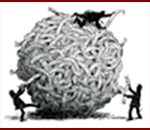 From the domination of the patriarchy and its greed for power and resources, to the negation of any kind of true social and legal justice, fixing the Big Picture is going to take public persistence, strategic action, and (ultimately) creative cooperation to either unravel or discard the current system.
From the domination of the patriarchy and its greed for power and resources, to the negation of any kind of true social and legal justice, fixing the Big Picture is going to take public persistence, strategic action, and (ultimately) creative cooperation to either unravel or discard the current system.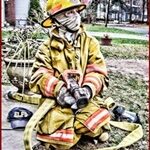 When my grandson was 7 or 8 (he is now 17), he became enamored of firemen and their uniforms. Every week, he visited our local fire station, getting to know the firemen personally. Finally, they gave him a discarded uniform, including sections of the hose. He was so excited, he even wore the stuff grocery shopping.
When my grandson was 7 or 8 (he is now 17), he became enamored of firemen and their uniforms. Every week, he visited our local fire station, getting to know the firemen personally. Finally, they gave him a discarded uniform, including sections of the hose. He was so excited, he even wore the stuff grocery shopping.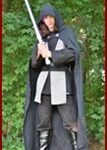 I suppose his love of “costumes” was reinforced by the fact that we are a family with some history in theatrical performance, and his progression into costumes of “authority” was fueled by his feeling secure and protected when he wore them – fire fighter, EMT, detective, police, Dr. Who, Jedi.
I suppose his love of “costumes” was reinforced by the fact that we are a family with some history in theatrical performance, and his progression into costumes of “authority” was fueled by his feeling secure and protected when he wore them – fire fighter, EMT, detective, police, Dr. Who, Jedi.
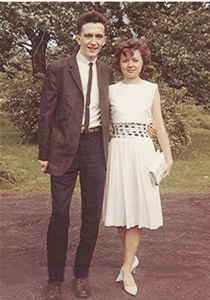 Six years ago today, my friend and once-husband died of lung cancer. This is the only existing photo of the day we eloped in 1962.
Six years ago today, my friend and once-husband died of lung cancer. This is the only existing photo of the day we eloped in 1962.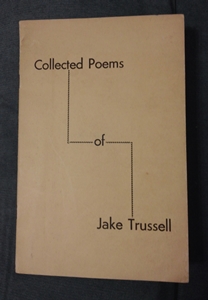 Even the information about him in the last available copy of his chapbook that I just bought for $10 doesn’t tell me anything about how I might have come to know anything about him more than a half-century ago.
Even the information about him in the last available copy of his chapbook that I just bought for $10 doesn’t tell me anything about how I might have come to know anything about him more than a half-century ago.